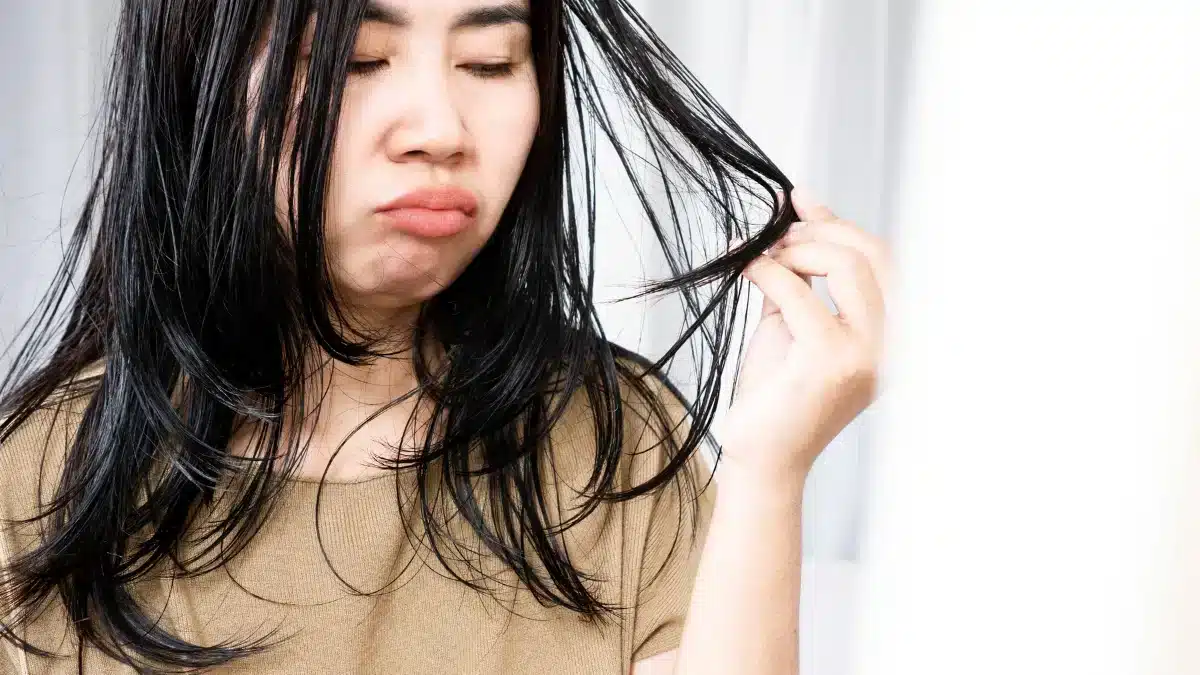Unraveling the Mystery: Why Does My Scalp Smell?
An unpleasant odor emerging from the scalp can be frustrating and disturbing.
The hair follicles and oil glands on the head work together in a complicated way.
This makes the scalp ecosystem prone to numerous problems.
Understanding the primary reasons your scalp smells is essential to find practical solutions and regaining confidence.
Several factors, including excessive sweating, hormonal changes, allergic reactions, or food choices, might cause scalp odor.
Chronic health problems such as Psoriasis and Seborrheic dermatitis (dandruff) could also be a factor.
This article will help explore the fascinating mystery of why my scalp smells.
We will also shed light on preventive measures and potential treatments.
Causes
A smelly scalp could result from a number of reasons.
These include,
Excessive sweating
Excessive sweating (Hyperhidrosis) can play a role in scalp odor.
When the scalp sweats excessively, it creates a moist environment that nurtures the growth of bacteria responsible for the unpleasant smell.
While sweat is devoid of odor, the combination with scalp bacteria can result in an awful fragrance.
High temperatures, physical activity, stress, or hormonal changes can trigger Hyperhidrosis.
To help mitigate the odor associated with excessive sweating, you can
- Ensure a cool and dry scalp
- Maintain good scalp hygiene
- Utilize products designed to reduce sweating
Dandruff affects approximately 50 percent of the general adult population worldwide.
Poor hygiene

Neglecting proper cleanliness can significantly impact the fragrance emitted from the scalp.
When routine cleansing and maintenance of the scalp are ignored, sweat, dirt, and excess oil can accumulate.
As a result, an ideal environment for the growth of bacteria or fungi fosters.
These microorganisms thrive in warm and moist conditions, creating an unpleasant aroma.
Adopting good scalp hygiene practices is pivotal for preventing and combating scalp odor.
These include regular shampooing, exfoliation, and thorough drying.
Dietary and hormonal factors
Foods containing garlic, onions, spices, or heavily processed ingredients, contain compounds that can be expelled through sweat and sebum production.
As a result, it leads to an unpleasant scent on the scalp.
Moreover, hormonal, vitamin, and mineral imbalances due to poor nutrition can impact overall body odor, including the scalp.
Striving for a balanced diet rich in fruits, vegetables, and lean proteins while minimizing the consumption of odor-triggering foods can help alleviate scalp odor.
Adequate hydration is also beneficial for eliminating toxins and maintaining scalp health.
Allergic reactions
Exposure of the scalp to allergens can trigger an immune response.
This can result in inflammation, itching, and redness.
Persistent scratching and excessive friction can disrupt the scalp’s natural barrier, allowing bacteria to thrive and produce a disgusting odor.
Common allergens include certain hair care products, dyes, fragrances, or environmental factors like pollen or dust mites.
To eliminate odor and restore scalp health, you will need to,
- Identify and avoid allergens
- Seek medical advice for severe allergic reactions
- Use hair products specifically formulated for sensitive individuals
Medical conditions

Scalp conditions can contribute to the emergence of an odorous scalp.
Specific medical conditions can disrupt the natural equilibrium of the scalp. These include,
- Psoriasis
- Scalp infections
- Seborrheic dermatitis (dandruff)
As a result, they cause inflammation, excessive oil production, and flaking.
These factors generate a favorable environment for the proliferation of bacteria or fungi, giving rise to an unpleasant scent.
Effective management practices can alleviate the scalp odor and restore its health.
Including medicated shampoos, topical treatments, or prescribed medications can help improve your scalp health.
Consulting a dermatologist is recommended for a thorough evaluation and appropriate treatment.
Conclusion
It is crucial to note that each individual’s scalp is unique, and what works for you may not be effective for others.
The mystery of why the scalp emits an unpleasant odor can be unraveled through a multifaceted approach.
Neglecting proper hygiene, dietary changes, and allergic reactions can all contribute to scalp odor.
Understanding these factors can help you take proactive steps in maintaining scalp health.
Regular cleansing, using appropriate hair care products, and maintaining a balanced diet, can help prevent and combat scalp odor.
Seeking professional advice for persistent or severe cases is crucial for diagnosing and addressing underlying scalp conditions.
You can regain confidence and enjoy a fresh and odor-free scalp by unveiling this mystery.
Frequently Asked Questions
What should a normal scalp smell like?
A healthy scalp generally has a subtle and odorless fragrance. It lacks any noticeable or unpleasant smells. If you detect persistent unusual scents or alterations in odor, seeking advice from a healthcare provider is recommended.
How do I stop my scalp from smelling without washing my hair?
If you want to avoid washing, you can use dry shampoo, essential oils, or baking soda as alternative methods to combat scalp odor. Regular brushing, keeping your hairbrush clean, and practicing good scalp hygiene also effectively minimize unwanted odors.
Should the scalp have a smell?
Usually, a healthy scalp is odorless. However, if you encounter persistent or noticeable smells, it’s recommended to seek medical advice for a thorough assessment and guidance.
What does an unwashed scalp smell like?
When the scalp is unwashed, it may acquire a stagnant or greasy aroma due to natural oils, sweat, and dirt buildup. Consistent hair hygiene is crucial to prevent undesirable odors.
WowRx uses only high-quality sources while writing our articles. Please read our content information policy to know more about how we keep our content reliable and trustworthy.






